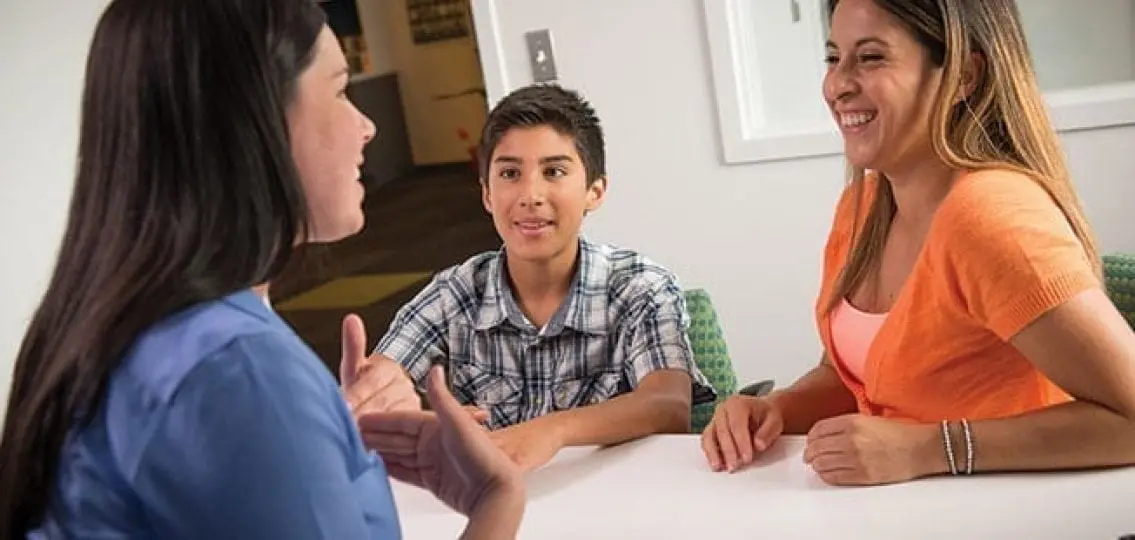Most of the time, the after-school feedback I get from my teens comes down to one word: “Fine.” Whether I’m asking, How was your day at school? or How did you do on that geometry test?, I typically get that famous one-word response that tells me absolutely nothing.

Luckily for me, there is one time of the year when I do get a sliver of insight into what’s really going on: at parent-teacher conferences. Conferences can be a parent’s best insight into a teen’s daily life at school. But only if we use the opportunity wisely. [adrotate banner=”39″]
Questions To Ask At Parent Teacher Conferences
The number of teachers we need to speak with, however, and the relatively short period of time assigned for each conference, can make the whole affair feel a little bit like speed dating. If you don’t have a good strategy, that time can pass quickly without getting to the good stuff.
You may only have a few minutes with your child’s teacher to find out how things are going at school. Here’s how to maximize the intel from that precious time slot.
Emily Levitt, vice president of education at Sylvan Learning, suggests having a few targeted questions ready to go to help you fill in the picture. Based on her experience as a classroom teacher, she recommends asking these parent teacher meeting questions:
- What do you think are the most important skills to have in order to succeed in this class?
- Are some types of assignments weighted more heavily than others?
- What strengths and weaknesses do you see in my child?
- Is my child raising their hand and participating in class?
- Is my child asking for help when they need it?

Levitt also advises parents to take the opportunity to uncover any social issues that may be impacting a student’s performance. “If a parent has potential concerns about bullying, for example, be sure to ask the teacher, How is my child interacting with their peers? Do you see any problems I should be aware of?” she says. And if you haven’t done so already, let the teacher know of any extenuating circumstances that could affect a child’s academic performance. Examples might include a death in the family, divorce, or an extended illness.
We’re On the Same Team
Cyndy McDonald has seen her share of parent-teacher meetings in her more than 14 years as a guidance counselor in California. She stresses, “The most important thing is to go in with the attitude that we’re all on the same team. Teachers want to hear that parents will support them in their mission to educate.”
Having said that, sometimes the conference does not go according to plan. Perhaps there is an issue with the teacher that does not get resolved to your satisfaction. It may have to do with your child’s academic performance or a personality conflict.
In that case, recommends McDonald, “Be sure to talk with your child’s other teachers to find out if this issue is happening in every class, or just in this one. If the issue is missing homework, for example, you could let the teacher know, This is what seems to be working in other classes for my child; could we try this in your class?”
Do Your Homework
Sometimes this approach doesn’t lead to a positive resolution. McDonald then suggests meeting with the guidance counselor, vice principal, or dean of students to form a “student study team” to address the issue at hand. “If a parent comes to me after they’ve done their homework on the issue, that makes my job so much easier to help resolve it,” she says.

Even if all issues are not resolved at the parent-teacher conference, that one-on-one time with the teacher lays the groundwork for proactive communication and teamwork between you, the teachers, and the student you both care about. Make the most of it.




